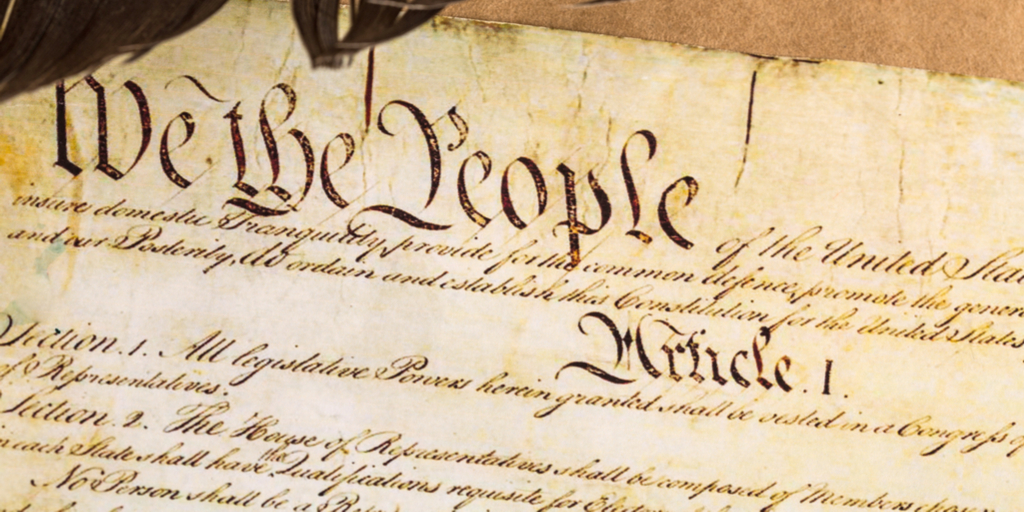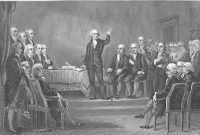The Preamble to the Constitution has an important but limited function in constitutional interpretation.
Gouverneur Morris on the Preamble to the Constitution
In some prior posts, I have been discussing both the Preamble to the Constitution and the effect on the Constitution of Gouverneur Morris revising it for the Committee on Style. In this post, I explore the intersection of these issues: How did Gouverneur Morris’s revision of the Preamble change the Constitution?
The Convention had referred to the Committee of Style the following version of the Preamble:
Preamble: We the People of the States of New-Hampshire, Massachusetts, Rhode-Island and Providence Plantations, Connecticut, New-York, New-Jersey, Pennsylvania, Delaware, Maryland, Virginia, North-Carolina, South-Carolina, and Georgia, do ordain, declare and establish the following Constitution for the Government of Ourselves and our Posterity.
The Committee of Style, with Gouverneur Morris as the lead author, produced a Preamble very similar to the one we know:
We, the People of the United States, in order to form a more perfect union, to establish justice, insure domestic tranquility, provide for the common defence, promote the general welfare, and secure the blessings of liberty to ourselves and our posterity, do ordain and establish the Constitution for the United States of America.
One very significant change is that Morris changed the language “We the People of the States” to “We the People of the United States.” One might conclude that the change Morris made rendered the Constitution a much more nationalist document. Perhaps, but I am not so sure.
Here, let me focus on one aspect of the Preamble—the question of what entity is enacting the Constitution. Is it a single people who make up the nation? Or is it the multiple peoples of the different states? The conventional way of reading the change made by Morris is that it changed the enacting entity from the multiple peoples to a single people.
But it is not clear that is true. “We the people of the states” could be referring to either of these possibilities. Obviously, it could mean the different peoples of the states, as the conventional reading has it. But it could also mean a single people for the nation. The phrase might be referring to a single people living in the different states. That is, it might have been saying “we the people who live in these different states.”
Conversely, “We the people of the United States” could be referring to either the single people or the multiple peoples. Obviously, it could mean the single people, as it does in the conventional reading of the term. But it could also be referring to the multiple peoples of the different states. The United States didn’t always mean a single nation, like France or Russia. At the time of the Constitution, it often was understood as a group of states that were united together—the United States were the states that were united, in a similar way to how the United Nations refers to separate nations that are united for certain purposes.
People often forget that the United States was originally understood as a plural noun. The Constitution itself treats it that way, stating in the Treason Clause “Treason against the United States, shall consist only in levying War against them, or in adhering to their Enemies.”
In the end, I am not sure that the change made by Morris has much effect on this key question. To me, the most important aspect of the Preamble is that it focuses on popular sovereignty. It is the people, rather than the government of the states or the nation, that are the enactors. But the people were enactors under the previous version as well as Morris’s version.



